Keeping pests out of your garden is essential for maintaining healthy plants and ensuring a bountiful harvest. Pests, ranging from insects to rodents, can cause significant damage by feeding on leaves, stems, and fruits. Without proper management, they can quickly overrun your garden, leaving it vulnerable to disease and stunted growth.
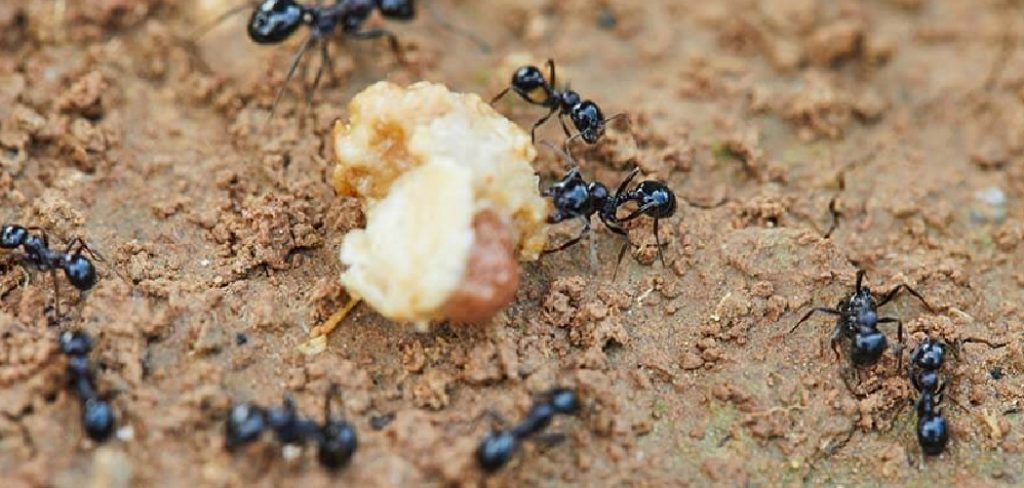
Fortunately, there are a variety of methods to protect your garden from unwanted visitors while promoting ecological balance. Whether you’re using natural remedies, physical barriers, or careful planting strategies, creating a pest-free environment is achievable with the right approach. In this article on how to keep pest out of garden, we’ll cover some effective ways to protect your plants and enjoy a thriving garden.
Identify the Common Pests in Your Area
The first step in keeping pests out of your garden is to identify the most common pests in your region. Different types of pests can vary from one area to another, so it’s essential to understand which ones are prevalent in your locality. Some common garden pests include aphids, caterpillars, slugs and snails, and rodents like rabbits and squirrels.
Once you’ve identified the specific pests that may be causing damage to your plants, you can research their habits and vulnerabilities. This information will help you choose the best methods for controlling them effectively.
Needed Materials
To effectively keep pests out of your garden, you may need to gather the following materials:
Garden Gloves
These will protect your hands while handling potentially harmful substances and plants. They are also useful for removing pests by hand.
Insecticides and Pesticides
These are chemical substances used to kill or repel pests. Opt for natural options that are less toxic to beneficial insects and pollinators.
Traps
Traps can be an effective method of controlling pests such as rodents, slugs, and snails.
Netting or Fencing
Physical barriers like netting or fencing can help keep larger pests such as deer or rabbits out of your garden.
8 Simple Methods on How to Keep Pest Out of Garden
Method 1: Companion Planting
Companion planting is a natural and effective way to deter pests while promoting the health of your garden. This method involves strategically growing certain plants together to create a mutually beneficial environment. Some plants repel pests with their strong scents, while others attract beneficial insects that prey on harmful pests.
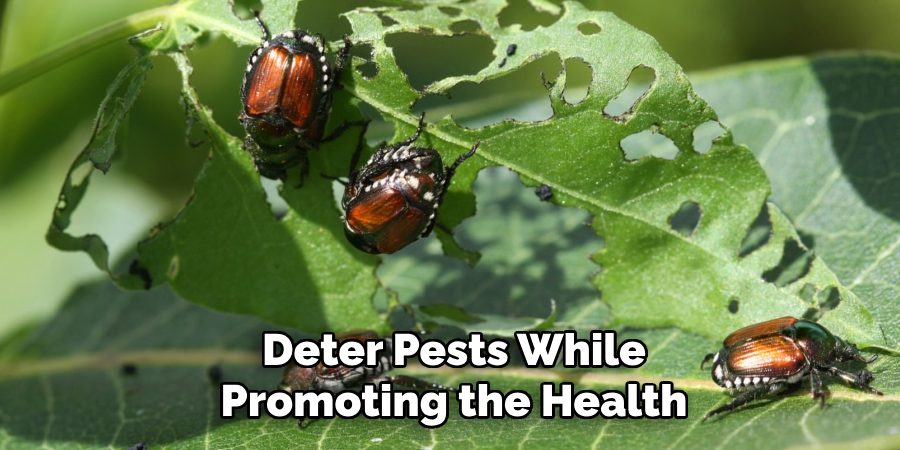
For example, marigolds are often used to repel nematodes and aphids, while basil can help deter mosquitoes and flies. Similarly, planting herbs like mint or rosemary near susceptible crops can discourage pests such as cabbage moths. By selecting companion plants that complement your garden, you can reduce the reliance on chemical pesticides and encourage a balanced ecosystem.
Method 2: Attract Beneficial Insects
Not all insects are harmful to your garden. Some beneficial insects prey on pests, reducing their numbers and keeping them in check. Ladybugs, lacewings, and praying mantises are examples of beneficial insects that feed on pests like aphids and caterpillars.
You can attract these insects to your garden by planting a diverse range of plants, including flowers like daisies, fennel, and yarrow. Additionally, you can purchase or build insect houses to provide shelter for these helpful creatures.
Method 3: Apply Natural Remedies
Certain natural ingredients have been found to be effective at deterring pests from the garden. For example, garlic spray or chili pepper solutions can repel pests without harming beneficial insects or pollinators. Other natural remedies include using coffee grounds to deter slugs and beer traps for snails.
The application of these remedies may need to be repeated regularly for the best results.
Method 4: Rotate Your Crops
Pests often target specific plants, which can lead to an infestation in your garden. To prevent this from happening, rotate your crops each growing season. This method involves planting different types of crops in a location each year, preventing pests from becoming established and reducing the risk of disease transmission.
It also helps to replenish the soil with different nutrients, promoting healthy plant growth.
Method 5: Use Physical Barriers
Physical barriers like netting or fencing can be an effective method of keeping larger pests out of your garden. Fencing can deter animals like rabbits and deer from entering your garden, while netting can prevent birds and insects from damaging your plants.
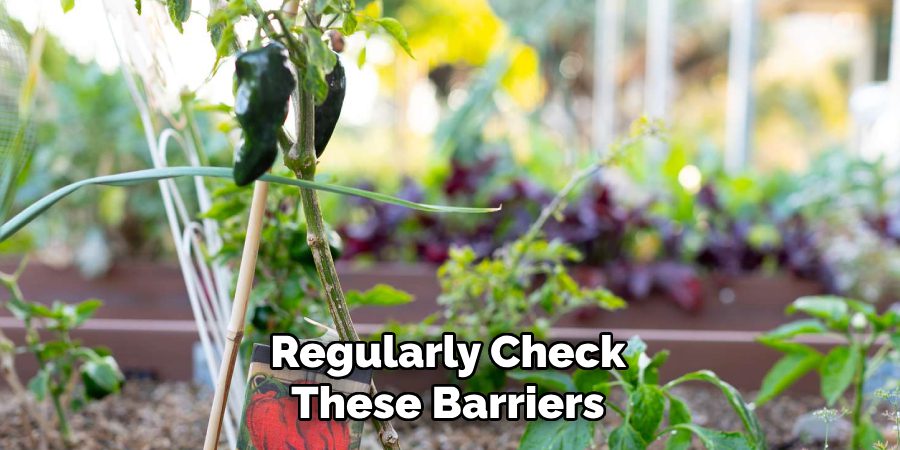
Remember to regularly check these barriers for any holes or gaps and repair them promptly.
Method 6: Practice Good Garden Maintenance
Proper garden maintenance is crucial for preventing pest infestations. Regularly removing dead leaves, weeds, and debris reduces hiding spots for pests and disrupts their breeding grounds. It’s also essential to water plants at the base rather than on the leaves, as wet foliage can attract pests and promote the spread of diseases.
Method 7: Handpick Pests
For smaller gardens or individual plants, handpicking pests may be an effective method of control. Wear gloves and inspect your plants regularly for any signs of pests, such as holes in leaves or visible insects.
You can then remove these pests by hand, dropping them into a bucket of soapy water to prevent them from returning to your garden.
Method 8: Consult with a Gardening Expert
If you’re still struggling to keep pests out of your garden despite trying various methods, it may be helpful to consult with a gardening expert. They can help identify the specific pests in your garden and provide tailored advice on the best methods for controlling them.
Following these methods on how to keep pest out of garden can help you keep pests out of your garden effectively without relying on harmful chemicals. Remember to always monitor your garden and adjust your approach as needed to maintain a healthy and pest-free environment for your plants. Happy gardening!
Do You Need to Use Professionals?
While many pest control methods can be implemented by home gardeners, there are situations where hiring a professional might be necessary. If an infestation is severe or persists despite your best efforts, professionals can provide advanced solutions that are both efficient and effective.
Professional pest control services have access to specialized tools, treatments, and expertise to tackle difficult problems and prevent further damage to your garden. Additionally, they can accurately identify pest species and tailor solutions to your specific needs. For organic gardeners, many companies now offer eco-friendly pest control options that minimize harm to beneficial insects and the environment.
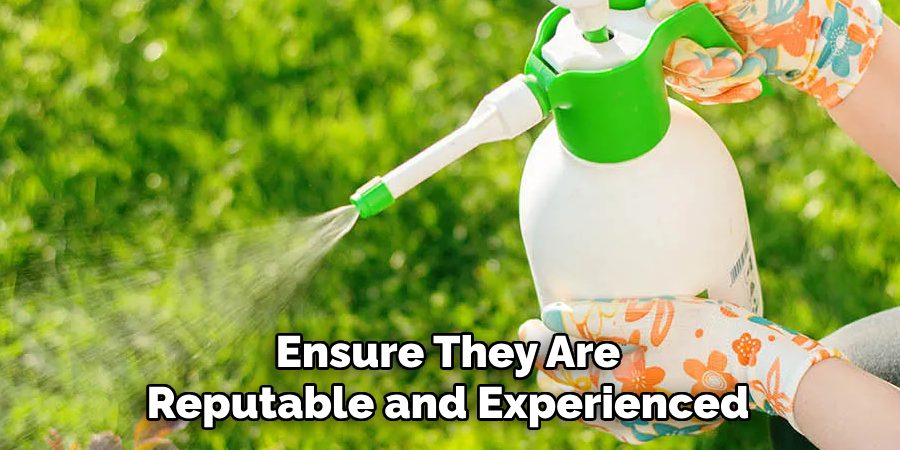
Before hiring a professional, ensure they are reputable and experienced in dealing with garden pests. Request a detailed plan of action and any safety precautions for pets, wildlife, and surrounding plants. While professional help may involve added costs, the long-term health and productivity of your garden can make it a worthwhile investment.
How Much Will It Cost?
The cost of pest control for your garden can vary widely depending on the methods you choose and the severity of the pest problem. For home gardeners using DIY approaches, expenses are usually limited to purchasing items like netting, natural remedies, or plants for companion planting. These costs are generally affordable, ranging from $10 to $50 depending on the materials and scale of your garden.
If you decide to hire a professional pest control service, the cost will depend on the size of your garden, the type of pests being targeted, and the treatments required. On average, professional services can range anywhere from $100 to $500 for a one-time treatment. Ongoing pest management plans, which include periodic treatments, may cost between $300 and $1,000 annually.
It’s essential to balance your budget with the benefits of effective pest control. For severe or recurring infestations, investing in professional help may save money in the long term by preventing irreparable damage to your plants. Always research and obtain quotes from multiple providers to ensure you receive quality service at a fair price.
Additional Tips
- Birds can be both beneficial and detrimental in the garden, so consider using bird feeders or birdhouses to attract them away from your plants.
- Diatomaceous earth is a natural substance that can help control pests like ants, fleas, and beetles by dehydrating their exoskeletons.
- Avoid using broad-spectrum pesticides that harm beneficial insects and pollinators while targeting pests. Instead, opt for targeted pesticides or natural remedies.
- Properly dispose of any diseased plants and fallen fruit to prevent the spread of pests and diseases in your garden.
- Regularly inspect your plants for signs of stress or damage as they may be more susceptible to pest infestations when weakened.
Frequently Asked Questions
Q: What Are Some Common Pests That Can Damage a Garden?
A: Some common pests include aphids, slugs, snails, caterpillars, and mites. The specific pests may vary depending on your location and the types of plants in your garden.
Q: Can Pests Be Beneficial for My Garden?
A: Yes, some pests, like ladybugs and bees, can be beneficial for pollination and controlling harmful pests. It’s important to properly identify pests before taking action to avoid unintentionally harming beneficial insects.
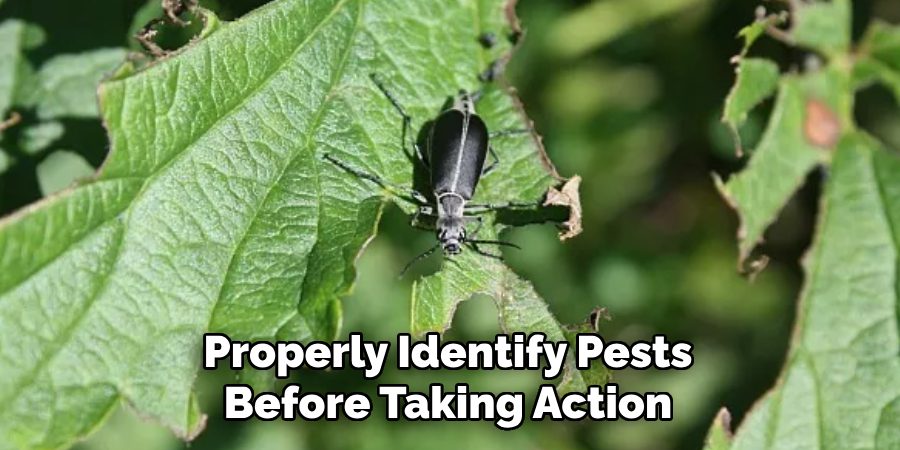
Q: How Do I Know if My Plants Are Infested with Pests?
A: Some signs of pest infestations include visible insects, holes in leaves or fruits, wilting or yellowing of leaves, and stunted growth. Regularly inspecting your plants can help you catch pest problems early on.
Conclusion
With these eight methods on how to keep pest out of garden, you can keep pests out of your garden and enjoy a thriving and healthy crop. Remember to regularly inspect your plants and stay vigilant against potential infestations.
By taking proactive measures to protect your garden, you can minimize the need for chemical pesticide use and create a natural, sustainable ecosystem. Happy gardening!

Professional Focus
Oliver Wood, a passionate patio designer, specializes in creating comfortable and inviting outdoor spaces that enhance relaxation and entertainment. His work combines a deep understanding of design with a love for nature, making him a standout professional in the field of outdoor living spaces. Through his thoughtful approach, he transforms everyday patios into extraordinary retreats for family and friends.
About the Author
Oliver Wood, a skilled patio designer, shares his expertise on outdoor living through his designs and insights. With a background in patio design and a genuine passion for creating beautiful spaces, he encourages others to invest in their outdoor environments, enhancing their homes with functional and inviting spaces for relaxation and entertainment.
Education History
University: Virginia Union University
Oliver’s education equipped him with the knowledge and skills to design patios that merge aesthetics with comfort, transforming outdoor areas into beautiful extensions of the home.
Expertise:
- Patio Design and Outdoor Living Spaces
- Functional and Aesthetic Landscaping
- Comfortable and Inviting Outdoor Environments
- Design Philosophy for Family-Oriented Spaces
- Creating Spaces for Relaxation and Entertainment
